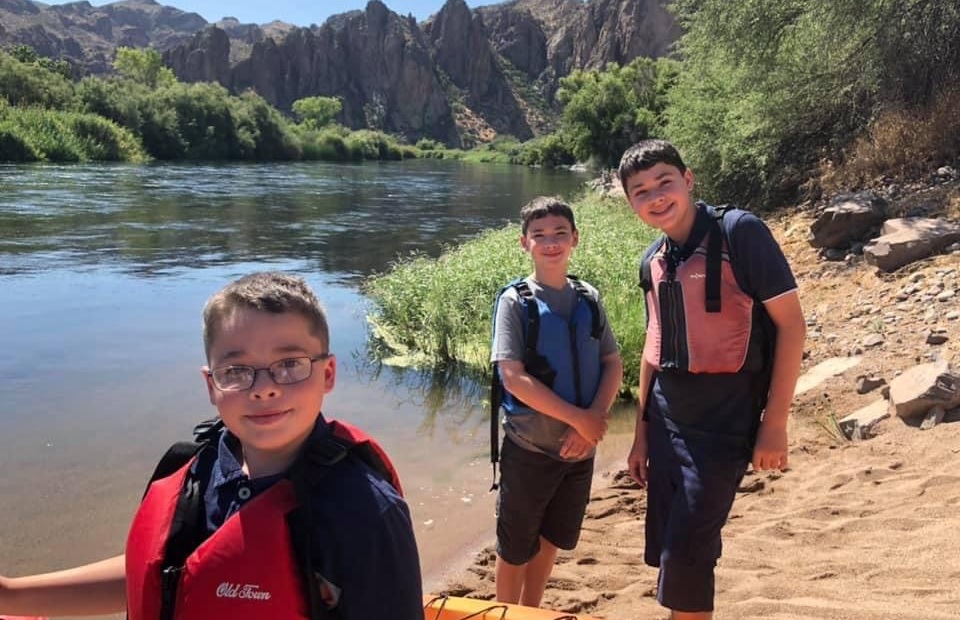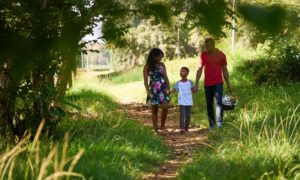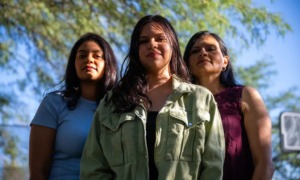On a family vacation in San Diego three years ago, Marc Garcia’s son had a meltdown that, because he is autistic, was a cry of distress, not your average temperature tantrum.
Onlookers stared. “You get these very strange looks from other adults,” Garcia said. “It’s uncomfortable. Even worse, you’re made to feel unwelcome.”
 Aiming to ensure that fewer families like his would confront the same difficulties in his town, Garcia, president and CEO of the Visit Mesa tourism office, spearheaded efforts resulting in that Arizona destination becoming the nation’s first “autism certified city.”
Aiming to ensure that fewer families like his would confront the same difficulties in his town, Garcia, president and CEO of the Visit Mesa tourism office, spearheaded efforts resulting in that Arizona destination becoming the nation’s first “autism certified city.”
To get that designation, staffers at more than 60 Mesa-area hotels, restaurants, museums, playgrounds, parks and other attractions received International Board of Credentialing and Continuing Education Standards training in how to better serve individuals with autism and other cognitive disorders, including severe anxiety, dyslexia and attention deficit hyperactivity disorder.
“What the training does,” Garcia said, “is it puts the viewer into the world of someone who has autism. If you’re at the front desk of a hotel or in a restaurant, it’s something you may then be able to more readily recognize.”
“It’s significant,” mom of three and certified autism travel planner Nicole Thibault said. That Fairport, N.Y. mother’s oldest son has autism and her youngest has delayed speech caused by a neurological disorder.
Thibault, who runs Magical Storybook Travels for families with special needs, cited an International Board of Credentialing poll finding that family vacations aren’t taken by 87% of parents of children with autism spectrum disorder, which the Centers for Disease Control and Prevention reports has been diagnosed, with varying severity, in one out of 54 youth.
“The thought of traveling with a child with autism can be too overwhelming for some,” Thibault said. “And parents are nervous to take the leap of money, time and energy of going to a destination that may or may not be accommodating to their family’s needs.”
She continued: “On a recent trip to Mesa, my family and I visited many of the newly certified autism centers in and around the city and it was an amazing few days of adventure and acceptance.”
Thibault said her 17-year-old son with autism agreed: “He loved visiting this city because they were laying out the welcome mat for families with autism.”
Some venues promise autism-sensitivity but don’t deliver
Not every attraction calling itself “autism friendly” fulfills that promise.
“Places that say they’re autism friendly often aren’t equipped to handle a sensory overload meltdown. It’s not the same as a temper tantrum,” said Thibault, whose YouTube channel, Spectrum Travel Social Story, also offers travel tips for families with autistic children.
To help lessen the chances that an autistic child’s brain gets overloaded with information and other stimuli, triggering intense crying, screaming and rocking back and forth, those 60 Mesa venues have put certain things in place.
For example, the Arizona Museum of Natural History’s Cretaceous Seas wing has a sensory guide rating of four, the highest on a scale of one to four, in the sight category because of its fluorescent overhead lighting, exhibit spotlights and black lights. Those can trigger difficulty focusing, irritability, fear, stress and/or anxiety in someone with autism who is especially sensitive to bright and flashing lights.
For noise, the same wing gets a three-rating, alerting parents that they should bring along noise cancelling headphones.
“It’s important to know that if you met one child with autism, you met one child with autism,” Thibault says. “Not every child will be bothered by this.”
Sensory guide ratings, which also are given for touch and taste, are available in advance for each attraction a family plans to visit. Except for restaurants, most places get a one-rating for smell. The scent of garlic bothers one of Thibault’s sons. The son who has autism shuns fancy food, preferring plain burgers on a bun, no extras. “Not all restaurants are accommodating,” she said. “Here, if it’s not on the menu, they will try their best to accommodate us.”
Parents laud and businesses profit from autism-sensitive accommodations
In addition to sensory guides, patience goes a long way. When the Thibault family stayed at Saguaro Lake Guest Ranch two years ago, Tristan, then 15, had never ridden a horse. He was anxious. To accommodate him, the staff at the stables spent time introducing him to the horse, showing him how to mount and how to ride. They gave him a helmet, let him pet the horse and took it slow. “He loved it,” his mom says. “They made him and all of us feel welcome. We weren’t rushed. Everyone was friendly and helpful.”
Those instincts and sensibilities don’t come naturally to everyone. That reality underlies the special certification.
There are different levels of training to better ensure that venues deliver what they promise, said Meredith Tekin, president of the International Board of Credentialing and Continuing Education Standards, which lists autism-certified venues on its Autism Travel webpage.
“Upper management and supervisors receive more training than staff. Training is tailored to the setting,” she said. “In the hospitality industry, we look at communication and safety. We train staff to be aware and to understand the depth and breadth of what autism is. It’s different for each individual. What comes up is how to make someone you’re interfacing with feel comfortable.”
Once a business is certified, its employees take annual refresher courses, partly to ensure that they remain comfortable with the programming. Also offered to transportation agencies, schools, municipal governments, health care and entertainment industries, the training explains how persons with autism experience anxiety, how to welcome them and how to make sure everyone, including the staff, is at ease.
Participating autism certified venues found their return on investments grew, according to Tekin’s credentialing agency. For instance, Marriott executives reported a 50% spike in employee morale after that hotel chain was certified. Once Marriott announced the certification, its bookings by first-time guests rose 32%. After publicizing its autism certification, Sesame Place’s location near Philadelphia welcomed 400 families with special needs on opening day.
“Autism certification increases tourism and visitors from an underserved market,” Tekin said.
Mesa Mayor John Giles is proud that his city is autism-certified. “Part of the reason is we have some core values as a community. One of those is compassion,” he said. “The certification raised the city’s profile and numerous businesses benefited.”
Jeremy Hoyum, operations manager at Jake’s Unlimited, an indoor arcade, sees those gains. “… Over 3.5 million families are impacted by autism,” he said. “We want to embrace them. Of course, there’s a business positive to it. But we look at it more as ‘It’s the right thing to do.’”
Thibault’s family has booked a 2022 return to Mesa, she said, where the special training aims to ensure that travelers with autism “are met with smiles, handshakes and, most importantly, understanding.”
“Travel has always been a priority for our family,” Thibault said. “Despite our hurdles, we’ve learned how to travel with our sons who have anxiety, sensory issues and dietary restrictions. We’ve learned how to explore the world with as little stress and as much ease as possible.”
***
Michele Hollow is a New Jersey-based journalist writing about animals, health, mental health, and the environment. Her byline has appeared in the New York Times, New York Daily News, New Jersey Monitor, the Guardian, and Symphony Magazine.































